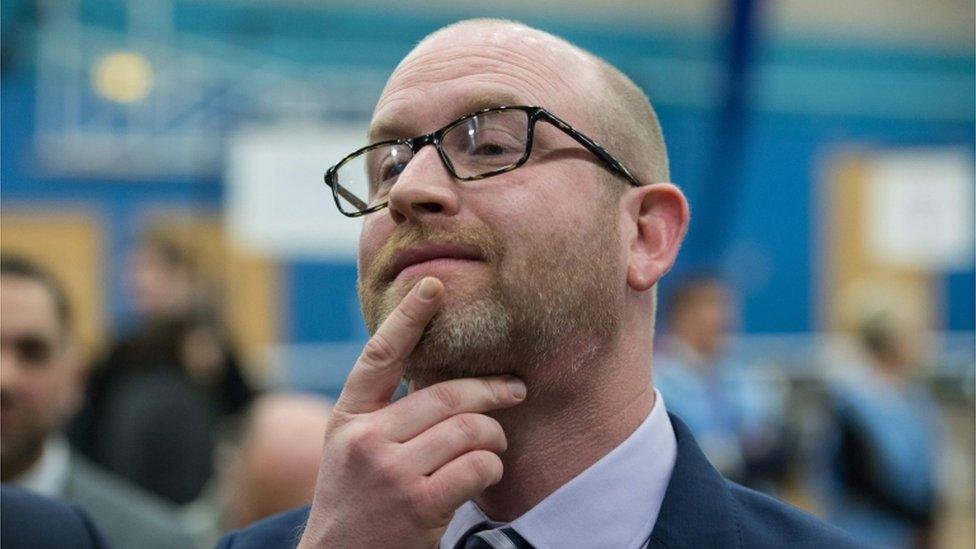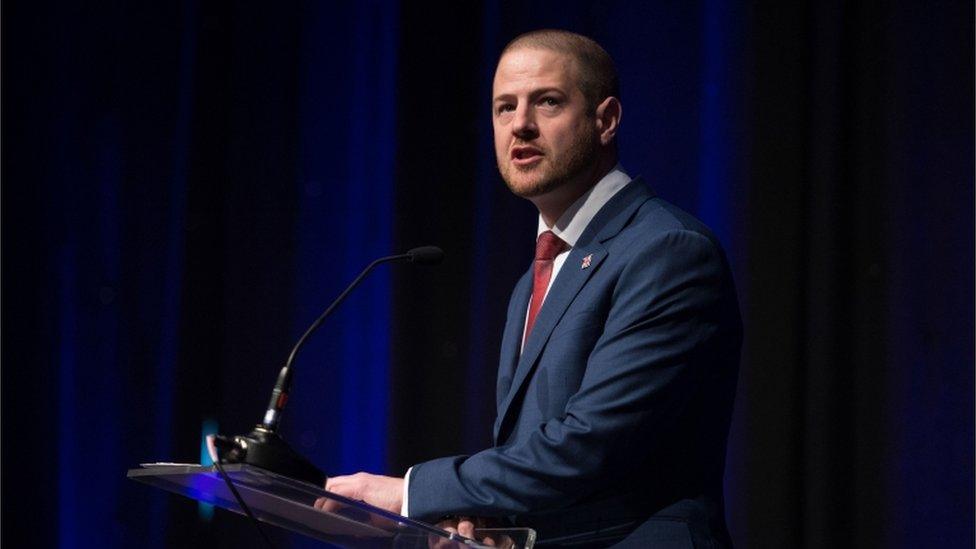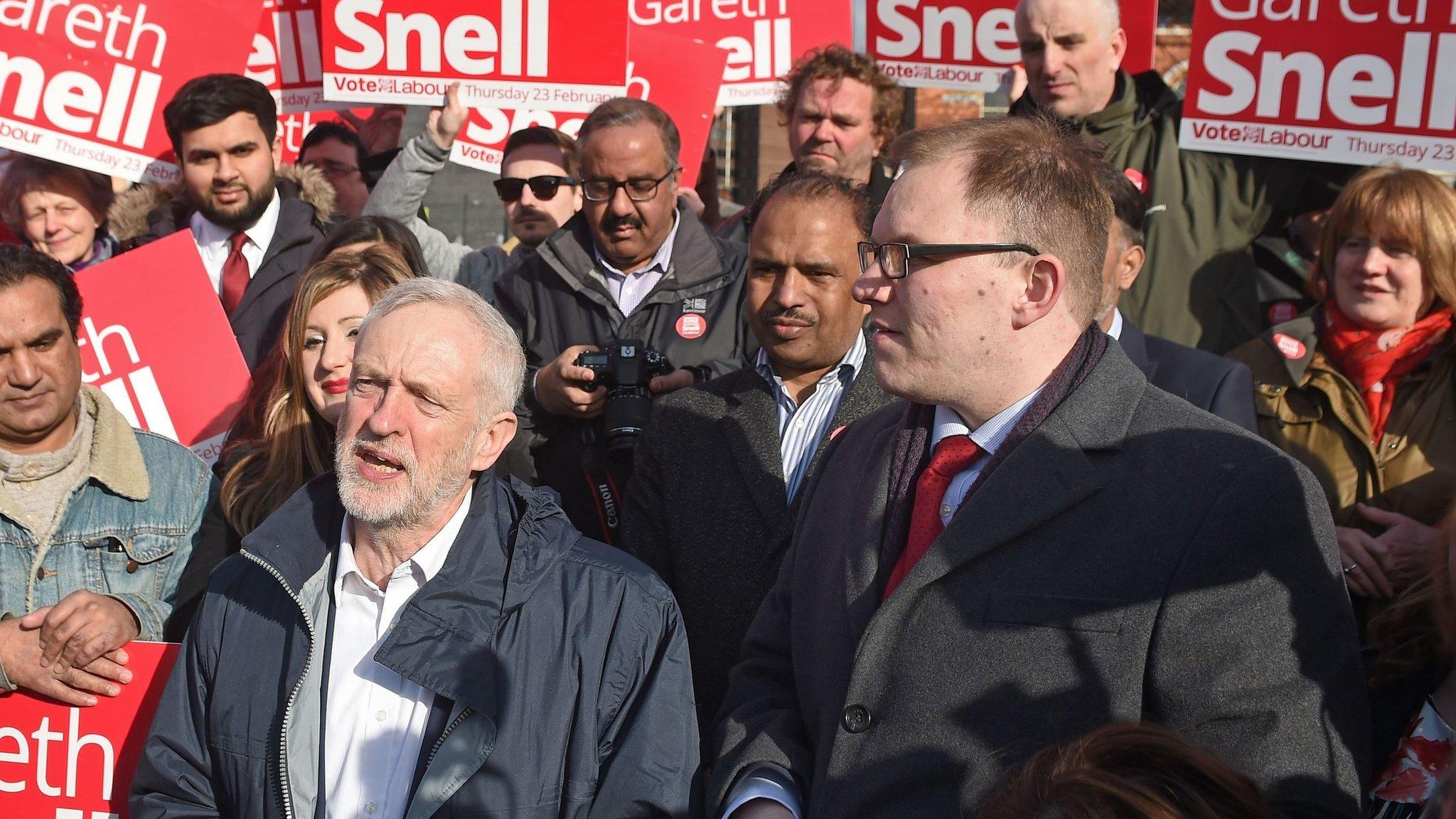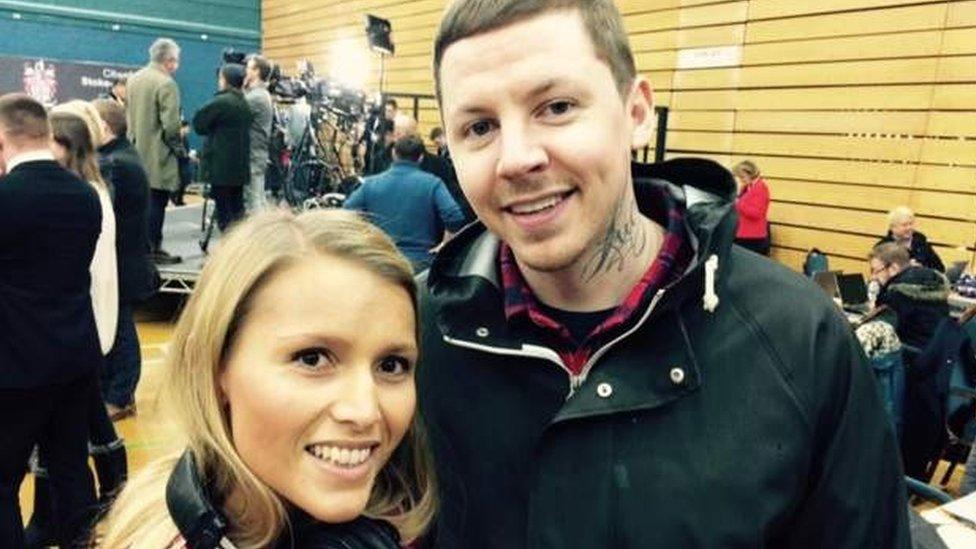UKIP by-election win 'could take years'
- Published

UKIP had "high hopes" leader Paul Nuttall would win the Stoke by-election
UKIP chairman Paul Oakden has said he believes it could be years before his party wins another by-election - after it failed to make the breakthrough it had hoped for in Labour's heartlands.
Party leader Paul Nuttall had hoped to oust Labour in the Stoke Central by-election but fell short by 2,630 votes.
Mr Oakden said it was a "stepping stone" for the party but added that the defeat was "disappointing".
The party currently has one MP - former Conservative Douglas Carswell.
Mr Oakden told the BBC Radio 4 Today programme: "Something clearly didn't fire yesterday in as much as the fact that we didn't win.
"Politics is a long game. It took us 23-odd years to win a referendum to get Britain out of the European Union.
"It may take that long for us to get a seat in Westminster via a by-election. But if that's how long it takes then that's what we will keep doing, because that's what we are here for."
'Disappointed but pleased'
The party has previously had two wins in by-elections - in 2014 - but both of those had been Tory MPs who had quit their party and then stood in the same constituencies for UKIP at the subsequent by-elections.
One of those, Douglas Carswell, held on to his seat in Clacton, Essex, at the 2015 general election. However, Mark Reckless lost his Kent seat of Rochester and Strood back to the Conservatives.

Analysis by Chris Mason, political correspondent
The questions facing Labour in Copeland are tumbling UKIP's way here in Stoke.
A party whose very success in achieving the thing they were set up to achieve, Brexit, brought with it a blunt question - what is the point of them now?
The answer sounded like this: winning traditionally Labour seats from Labour.
And yet here in Stoke-on-Trent, a hubbub of Brexiteer jubilation after the referendum, they failed.
UKIP insists this seat was always well down their target list. But on a night where Labour was sufficiently vulnerable to lose a previously rock-solid seat in Cumbria, UKIP's still the bridesmaid not the bride in the Potteries.
All of which begs two questions: If not here, where? If not now, when?

UKIP had regarded Stoke as a promising opportunity to make a different kind of electoral breakthrough, taking the fight to Labour in constituencies that had voted overwhelmingly in favour of Brexit at last year's EU referendum.
The party pinned its hopes on its new leader but his efforts were not enough to prevent Gareth Snell holding the Staffordshire city seat for Labour.
Mr Oakden said UKIP had gone into Thursday's by-election with "high hopes and optimism" but had never assumed they were favourites to win the Stoke seat.

UKIP chairman Paul Oakden said the party's leader "led from the front" in the Stoke campaign
He told the BBC's Victoria Derbyshire programme: "Sadly the four-week campaign that we had just wasn't enough to introduce ourselves and our new leader to the voters in Stoke-on-Trent Central.
"But actually we are very pleased coming out of yesterday - disappointed but pleased that we managed to improve on our vote result in 2015.
"We think that there is enough there to be very hopeful and optimistic about."
Hillsborough claim
He added: "This is a stepping stone, it is a disappointing night because we were hoping that we might win, but certainly it gives us some optimism for the future."
Mr Oakden admitted a false claim that Mr Nuttall had lost close friends in the Hillsborough football disaster had overshadowed the campaign, describing it as a "very unfortunate episode on a very sensitive issue".
But he said voters had barely mentioned it, saying: "There were other things that people wanted to talk about."
And he denied that Mr Nuttall had risked his reputation by losing the by-election and failing to take votes from Labour.
Mr Oakden said: "Paul Nuttall believes in leading from the front and that is exactly what he did by making himself the candidate in this election, and that is why it was a courageous thing to do and that is why our party are wholesome in their support of him as a leader this morning."
But Nigel Farage said the party had to learn lessons following the by-election defeat, adding that he believed UKIP should have been stronger on immigration.
He conceded that his successor as leader had "paid the price" for some mistakes made about his association with the Hillsborough disaster, but added: "I don't believe it reflects on Paul."
- Published24 February 2017

- Published24 February 2017
